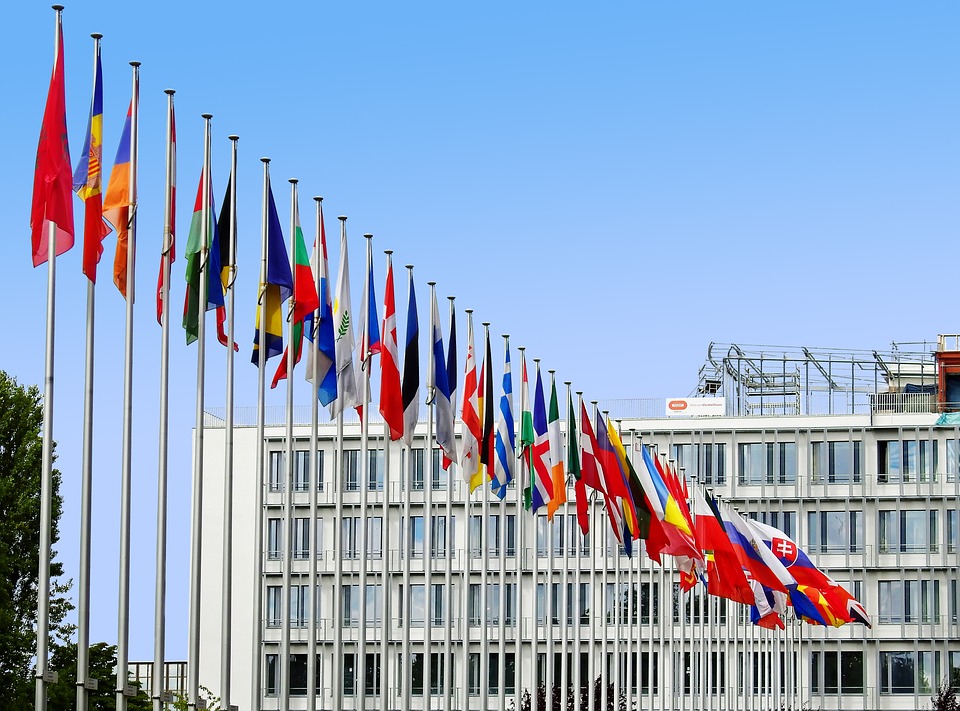Interior ministers of the European Union are looking to ease tensions on the issue of migration following the clash between France and Italy. The clash followed the fate of a boat that had rescued migrants on board in the Mediterranean.
During an emergency meeting of the bloc Friday last week, the ministers sought to ease tensions on the long-debated issue following the clash between France and Italy. Tensions over migration flared when France accepted the Ocean Viking vessel that carried 234 rescued migrants on board. Italy turned away the boat before it turned up in France.
“Everyone agrees not to repeat this kind of situation,” said European Commissioner Margaritis Schinas following the meeting.
During the meeting, the ministers agreed on a 20-point action plan proposed by the bloc’s executive branch to address migration in the central Mediterranean. One particular point in the plan involved strengthening cooperation with third countries, including steps to prevent departures from regions such as Northern Africa. The plan also sought greater coordination in the bloc of search and rescue, including in coastal and flag states.
The French and Italian ministers welcomed the plan. However, Schinas stressed that the EU must agree on a legal, overall framework to tackle migration.
“We cannot and should not work on a crisis-by-crisis situation, ship-by-ship, incident-by-incident. We need one single framework based on EU law,” said Schinas.
This year, over 90,000 migrants and refugees have arrived in the EU through the central Mediterranean route, marking a 50 percent increase from the numbers in 2021.
“It is only as Europeans that we can tackle these very difficult questions of irregular immigration,” said French interior minister Gerald Darmanin.
Also on Friday, the bloc warned that time is running out when it comes to changing Washington’s mind over its plans to grant consumer tax credits for US-made electric vehicles and other such products. The EU said that the $430-billion Inflation Reduction Act, which was already signed into law, would make the United States a leader in producing electric vehicles at the regional grouping’s expense.
The bloc has sought for an exception for EU products, as was agreed on Canadian and Mexican products.



 Trump Lifts 25% Tariff on Indian Goods in Strategic U.S.–India Trade and Energy Deal
Trump Lifts 25% Tariff on Indian Goods in Strategic U.S.–India Trade and Energy Deal  U.S.-India Trade Framework Signals Major Shift in Tariffs, Energy, and Supply Chains
U.S.-India Trade Framework Signals Major Shift in Tariffs, Energy, and Supply Chains  Trump Says “Very Good Talks” Underway on Russia-Ukraine War as Peace Efforts Continue
Trump Says “Very Good Talks” Underway on Russia-Ukraine War as Peace Efforts Continue  Trump Endorses Japan’s Sanae Takaichi Ahead of Crucial Election Amid Market and China Tensions
Trump Endorses Japan’s Sanae Takaichi Ahead of Crucial Election Amid Market and China Tensions  Trump Allegedly Sought Airport, Penn Station Renaming in Exchange for Hudson River Tunnel Funding
Trump Allegedly Sought Airport, Penn Station Renaming in Exchange for Hudson River Tunnel Funding  Nighttime Shelling Causes Serious Damage in Russia’s Belgorod Region Near Ukraine Border
Nighttime Shelling Causes Serious Damage in Russia’s Belgorod Region Near Ukraine Border  US Pushes Ukraine-Russia Peace Talks Before Summer Amid Escalating Attacks
US Pushes Ukraine-Russia Peace Talks Before Summer Amid Escalating Attacks  Trump Signs “America First Arms Transfer Strategy” to Prioritize U.S. Weapons Sales
Trump Signs “America First Arms Transfer Strategy” to Prioritize U.S. Weapons Sales  Missouri Judge Dismisses Lawsuit Challenging Starbucks’ Diversity and Inclusion Policies
Missouri Judge Dismisses Lawsuit Challenging Starbucks’ Diversity and Inclusion Policies  Trump’s Inflation Claims Clash With Voters’ Cost-of-Living Reality
Trump’s Inflation Claims Clash With Voters’ Cost-of-Living Reality  New York Legalizes Medical Aid in Dying for Terminally Ill Patients
New York Legalizes Medical Aid in Dying for Terminally Ill Patients  TrumpRx Website Launches to Offer Discounted Prescription Drugs for Cash-Paying Americans
TrumpRx Website Launches to Offer Discounted Prescription Drugs for Cash-Paying Americans  China Warns US Arms Sales to Taiwan Could Disrupt Trump’s Planned Visit
China Warns US Arms Sales to Taiwan Could Disrupt Trump’s Planned Visit  Trump Allows Commercial Fishing in Protected New England Waters
Trump Allows Commercial Fishing in Protected New England Waters  Norway Opens Corruption Probe Into Former PM and Nobel Committee Chair Thorbjoern Jagland Over Epstein Links
Norway Opens Corruption Probe Into Former PM and Nobel Committee Chair Thorbjoern Jagland Over Epstein Links  Jack Lang Resigns as Head of Arab World Institute Amid Epstein Controversy
Jack Lang Resigns as Head of Arab World Institute Amid Epstein Controversy  U.S. to Begin Paying UN Dues as Financial Crisis Spurs Push for Reforms
U.S. to Begin Paying UN Dues as Financial Crisis Spurs Push for Reforms 































